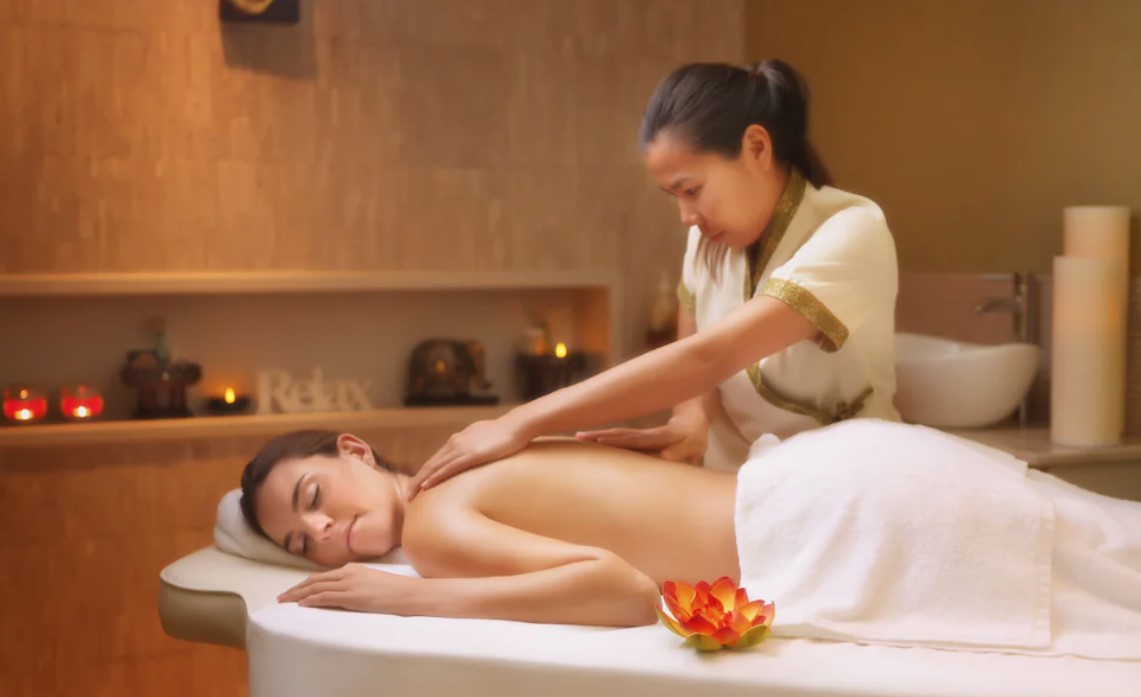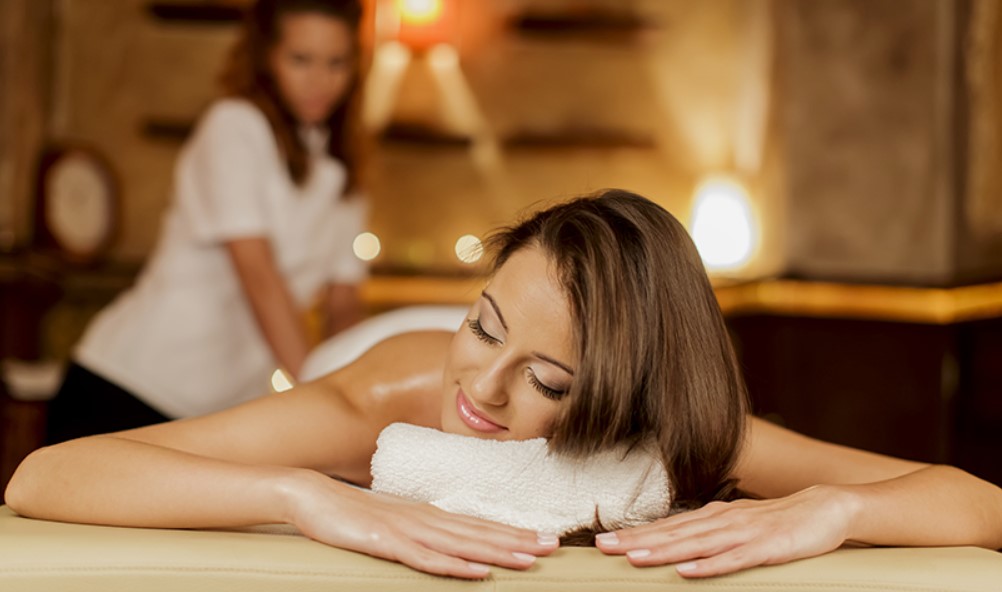Regular massage sessions play a significant role in enhancing the immune system. This improvement stems from the increased blood flow that occurs during massage, which helps distribute antibodies and protective proteins more effectively throughout the body. Among the various types of massages available, aromatherapy massage stands out as one of the most effective, combining traditional massage techniques with the therapeutic properties of essential oils.
Understanding Aromatherapy Massage
Aromatherapy massage integrates classic massage techniques with the application of essential oils. These oils not only enhance the effects of traditional massage but also bring their own therapeutic benefits, providing a comprehensive approach to body care. Aromatherapy massage is a holistic treatment that has been practiced for centuries, known for its ability to improve both physical and mental health.

Indications for Aromatherapy Massage
Aromatherapy massage is beneficial for a range of conditions, including:
- Chronic fatigue syndrome: Regular sessions help combat the persistent tiredness associated with this condition by stimulating blood flow and releasing tension in the muscles.
- Stressful conditions: The calming effects of essential oils, combined with the soothing massage techniques, help reduce stress levels, promoting a sense of relaxation and well-being.
- Overwork and overstrain: For those experiencing physical and mental strain from overwork, aromatherapy massage can provide relief by easing muscle tension and promoting mental clarity.
- Deterioration of memory and attention: Certain essential oils, such as rosemary and peppermint, are known to enhance cognitive functions, helping improve memory and concentration.
- Headaches: Essential oils like lavender and peppermint can help alleviate headaches by relaxing muscle tension and improving blood circulation.
- Joint diseases: Aromatherapy massage can reduce inflammation and pain in the joints, making it beneficial for conditions like arthritis.
Unique Features of Aromatherapy Massage
The primary difference between aromatherapy massage and classical massage lies in the technique’s gentleness. The goal is to distribute the essential oil evenly over the skin, ensuring its deep penetration through the pores. This process is broken down into three stages:
- Introductory Stage: Light stroking prepares the body for the main massage, lasting 1–3 minutes. This stage helps to relax the muscles and prepare the skin for deeper treatment.
- Main Stage: An intense massage targeting specific problems, lasting 5–20 minutes. This stage involves various techniques to address specific issues such as muscle tension, pain, or stress.
- Final Stage: Gentle movements reduce the intensity, relieving tension and any discomfort, for 1–3 minutes. This stage helps to calm the nervous system and ensure a smooth transition from the massage back to daily activities.

Basic Techniques of Aroma Massage
- Stroking: The massage mixture is poured onto the palms, heated by rubbing the palms together, and spread over the skin with slow sliding movements towards the heart. This technique helps in the even distribution of the oils and stimulates blood flow.
- Rotation: Circular movements with light, gradually increasing pressure to rub the mixture into the skin. This technique helps in deeper penetration of the oils and loosens tight muscles.
- Tingling: Light stroking with the fingertips, creating a slight tingling sensation. This method stimulates nerve endings and enhances the absorption of the oils.
- Kneading: Muscles are grabbed, squeezed, and pulled with the whole hand, requiring caution to avoid pain while ensuring a strong impact. Kneading helps to break down muscle knots and improve flexibility.
Oils Used in Aromatherapy Massage
Aroma massage utilizes two types of oils: base oils and essential oils.
Base Oils
Base oils serve as carriers for essential oils, diluting them and making them safe for application on the skin. Each base oil has its own unique properties:
- Peach and Apricot Kernel Oils: Slight tonic effect, used for aging or sagging skin. These oils are rich in vitamins A and E, which help to nourish and rejuvenate the skin.
- Avocado Oil: Anti-cellulite effect, softens rough skin areas. Avocado oil is deeply moisturizing and rich in fatty acids, making it ideal for dry or mature skin.
- Mustard Oil: Warming properties, ideal for restorative or relaxing massage. Mustard oil can help to improve circulation and relieve muscle stiffness.
- Sesame Oil: Hydrates, nourishes, and softens the skin, enhancing firmness and elasticity. It is also rich in antioxidants, which help to protect the skin from damage.
- Olive Oil: Low allergenic potential, analgesic properties. Olive oil is known for its moisturizing and healing properties, making it suitable for all skin types.
Essential Oils
Essential oils are selected based on the massage’s purpose and the desired therapeutic effect:
- Pain Relief: Lemon balm, mint, rosemary, nutmeg, bergamot, and ginger. These oils have analgesic and anti-inflammatory properties that help to relieve pain.
- Metabolic Boost: Oregano, tangerine, jasmine, vanilla, basil, orange, and anise. These oils stimulate the metabolism and promote overall health and vitality.
- Lymphatic Drainage: Fennel, pine, juniper, fir, cedar, and spruce. These oils help to detoxify the body by promoting lymphatic drainage and reducing fluid retention.

Benefits of Aromatherapy Massage
Aromatherapy massage offers numerous health benefits, including:
- Activation of Blood Circulation and Lymph Flow: Improved circulation helps to deliver oxygen and nutrients to cells more efficiently, while enhanced lymph flow aids in the removal of toxins.
- Relief of Tension and Muscle Pain: The combination of massage techniques and essential oils helps to release muscle knots and alleviate pain.
- Acceleration of Metabolic Processes: By stimulating the metabolism, aromatherapy massage can help to increase energy levels and promote weight loss.
- Removal of Excess Fluid from the Body: Improved lymphatic drainage helps to reduce swelling and fluid retention.
- Alleviation or Elimination of Headaches: Essential oils like lavender and peppermint help to relax muscles and improve blood flow, reducing headache symptoms.
- Strengthening of the Immune System: Regular massage sessions can boost the immune system by increasing the circulation of immune cells.
- Detoxification: Enhanced lymph flow and circulation help to remove toxins from the body more effectively.
- Normalization of Blood Pressure: Aromatherapy massage can help to lower blood pressure by promoting relaxation and reducing stress.
- Relief from Stress and Chronic Fatigue: The calming effects of essential oils and massage techniques help to reduce stress levels and combat fatigue.
- Enhancement of Scar and Wound Healing: Certain essential oils, such as lavender and frankincense, have properties that promote the healing of scars and wounds.
- Reduction of Cellulite Appearance: The massage techniques and oils used in aromatherapy massage can help to break down fat deposits and improve skin texture.
- Normalization of Appetite and Sleep: Essential oils like lavender and chamomile can help to regulate appetite and improve sleep quality.
- Calming and Balancing of the Nervous System: Aromatherapy massage promotes relaxation and emotional well-being, helping to calm the nervous system.
- Increase in Skin Elasticity and Firmness: The oils used in aromatherapy massage nourish the skin, improving its elasticity and firmness.
Contraindications to Aromatherapy Massage
Despite its benefits, aromatherapy massage is not suitable for everyone. Contraindications include:
- Oncology: Cancer patients should consult their healthcare provider before undergoing massage therapy.
- Purulent Processes: Massage can exacerbate infections or abscesses.
- Active Tuberculosis, HIV, and Other Infections: Massage can spread infections and should be avoided.
- Decompensated Severe Somatic Diseases: Conditions such as severe heart disease may worsen with massage.
- Exacerbation of Dermatological Conditions: Skin conditions like eczema or psoriasis may be aggravated by massage.
- Inflammatory Processes of the Lymphatic System: Lymphatic massage can spread inflammation.
- Allergies to Oil omponents: Individuals with allergies to certain oils should avoid aromatherapy massage or use hypoallergenic alternatives.
Conclusion
Aromatherapy massage is a powerful tool for enhancing the immune system and overall well-being. Its unique combination of essential oils and massage techniques provides a comprehensive therapeutic effect that addresses various health issues, from chronic fatigue to stress and muscle pain. While it offers numerous benefits, it is essential to consider the contraindications to ensure safe and effective treatment. Regular sessions of aromatherapy massage can be a valuable addition to a holistic health regimen, promoting physical, mental, and emotional balance. By choosing the right essential oils and techniques, individuals can tailor their massage experience to meet their specific health needs and enjoy the profound benefits of this ancient healing practice.

Soccer lover, shiba-inu lover, fender owner, vintage furniture lover and typography affectionado. Operating at the sweet spot between art and mathematics to craft an inspiring, compelling and authentic brand narrative.



